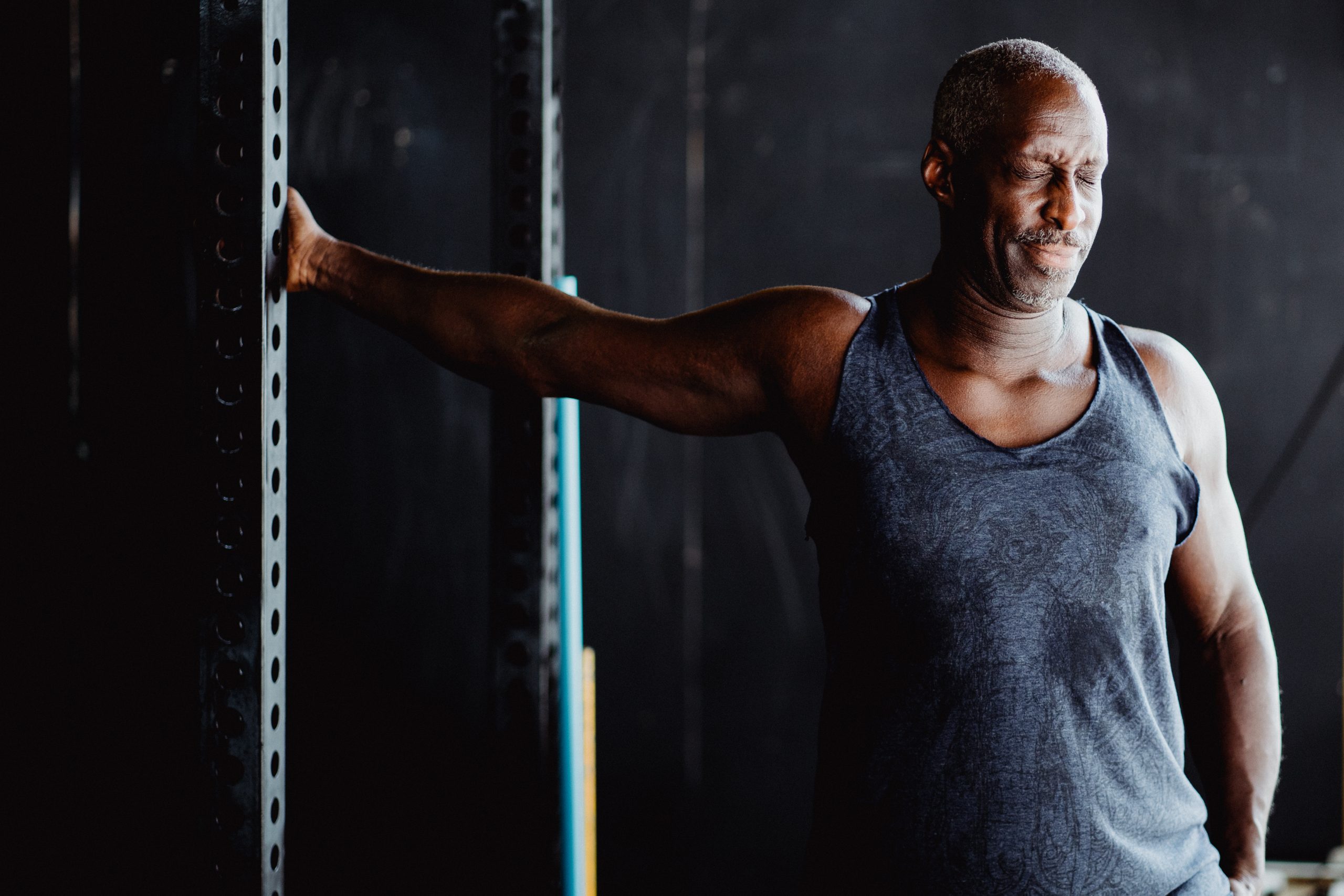Whether you’re younger or older, active or more sedentary, rotator cuff injuries are commonly seen amongst many of us. Given that its job is to provide strength and stability to the shoulder joint, the rotator cuff is surprisingly susceptible to injury. So what exactly is the rotator cuff, what does it do and how can you keep yours happy and healthy?
The Rotator Cuff
The rotator cuff is a group of four muscles and their tendons that arise from the shoulder blade and attach to the head of the humerus (upper arm), forming a cuff around the shoulder joint. It helps centre the head of the humerus firmly within the shallow socket of the shoulder, providing strength and stability to the shoulder joint during motion and activity. The rotator cuff helps you abduct your arm (lift your arm to the side), and rotate your shoulder inwards and outwards.
How do Rotator Cuff injuries occur?
Rotator cuff injuries are very common in people who perform a lot of repetitive overhead shoulder movements (eg. tennis players, baseball players, painters, carpenters, labourers etc) and also in older population due to normal ‘wear and tear’ in the tendons. Sometimes, they can also occur due to trauma to the shoulder.
Rotator cuff injuries usually start with a dull nagging ache in the shoulder which worsens when lifting or reaching overhead. Common activities that can cause an increase in pain include reaching behind to the backseat of the car, dressing/undressing, reaching for a box in an overhead compartment etc. It can also be painful when lying on the shoulder at night. Over time, this causes more strain on the rotator cuff which develops into weakness and more pain.
How do you prevent Rotator Cuff injuries?
The shoulder joint is a mobile joint which means it relies on the strength of the rotator cuff muscles and other surrounding muscles to provide stability to it. It is important to strengthen the rotator cuff as well as the other surrounding muscles around the shoulder joint to prevent injuries to the shoulder.
Rotator cuff-specific exercises as well as general shoulder strengthening exercises should be incorporated into all gym programs that involve upper body strengthening. This is particularly important for people who perform repetitive overhead activities in their sport, occupation or activities of daily living. Strengthening the rotator cuff provides a strong foundation for the shoulder joint when performing shoulder movements; reducing the amount of strain on it. If one of these muscles is weak, it places more stress on the rest of the rotator cuff muscles and tendons.
Thoracic (upper back) mobility is also important in preventing rotator cuff and other shoulder injuries. Poor mobility in the thoracic spine will typically cause forward and rounded shoulder posture which puts a lot more load on the rotator cuff tendons, increasing the risk of injury.
How do you treat Rotator Cuff injuries?
Treatment of rotator cuff injuries depend on the severity of the injury and the person’s age, goals and lifestyle.
In most cases, such as minor strains or partial thickness tears of the rotator cuff tendons in both younger and older individuals, conservative treatment is an effective course of treatment in returning them to pre-injury function. These injuries can usually heal themselves with appropriate rest and treatment such as physiotherapy.
Your treating physiotherapist will perform a full assessment of your shoulder and provide you with treatments including soft tissue massage and exercises to improve shoulder and upper back mobility as well as strengthening the rotator cuff and surrounding muscles. Non-steroidal anti-inflammatories can also be taken in consultation with your doctor. In some instances, corticosteroid injections are performed to reduce inflammation and assist in the healing process.
People suffering from more severe rotator cuff injuries such as full thickness tears or in those returning to high level sport or high shoulder function activities may benefit from a consultation with a surgeon on whether surgery to repair the rotator cuff muscles / tendons is indicated.
How can XRHealth help?
At XRHealth, all our practitioners are fully qualified physiotherapists with a wide range of experience who can appropriately assess your shoulder via telehealth and provide you with a tailored treatment plan.
As part of your rehabilitation with XRHealth, you will have the added benefit of experiencing our cutting edge VR technology along with your other exercises.
Our VR technology takes you through fun and interactive apps that can be tailored specifically to your injury and can analyse your movements which will assist in improving range, strength and control of your shoulder, returning you to full function.
Book in to see an XRHealth physiotherapist today!



